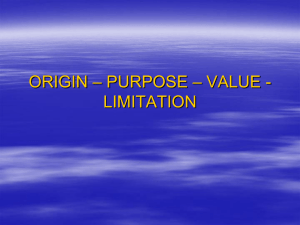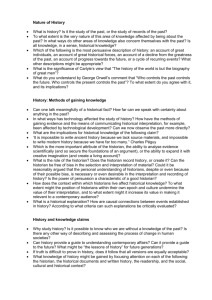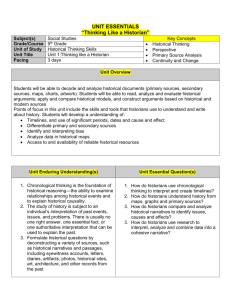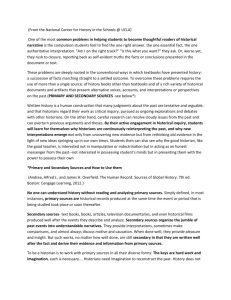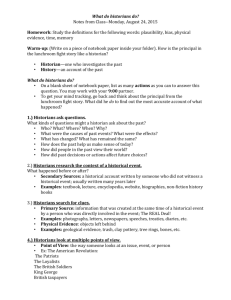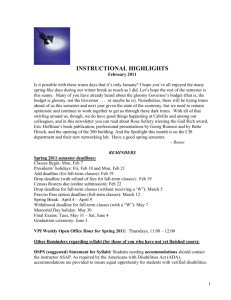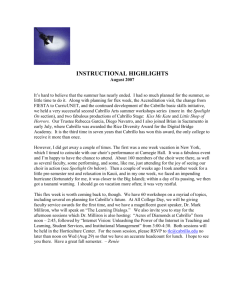Type of Document
advertisement
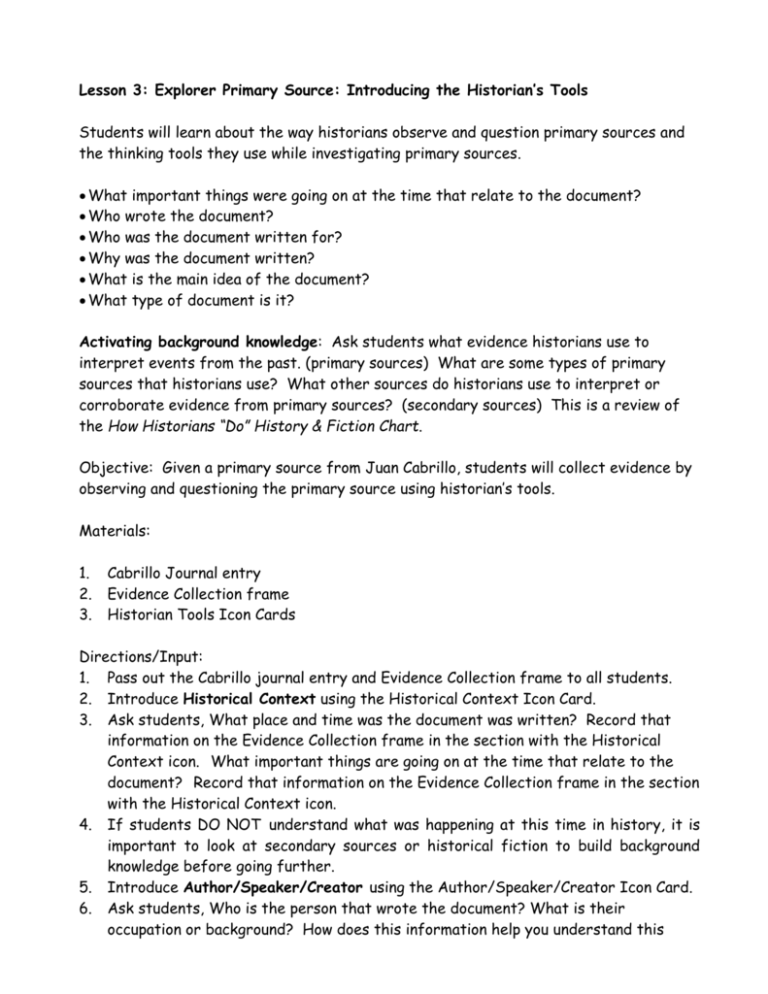
Lesson 3: Explorer Primary Source: Introducing the Historian’s Tools Students will learn about the way historians observe and question primary sources and the thinking tools they use while investigating primary sources. What important things were going on at the time that relate to the document? Who wrote the document? Who was the document written for? Why was the document written? What is the main idea of the document? What type of document is it? Activating background knowledge: Ask students what evidence historians use to interpret events from the past. (primary sources) What are some types of primary sources that historians use? What other sources do historians use to interpret or corroborate evidence from primary sources? (secondary sources) This is a review of the How Historians “Do” History & Fiction Chart. Objective: Given a primary source from Juan Cabrillo, students will collect evidence by observing and questioning the primary source using historian’s tools. Materials: 1. 2. 3. Cabrillo Journal entry Evidence Collection frame Historian Tools Icon Cards Directions/Input: 1. Pass out the Cabrillo journal entry and Evidence Collection frame to all students. 2. Introduce Historical Context using the Historical Context Icon Card. 3. Ask students, What place and time was the document was written? Record that information on the Evidence Collection frame in the section with the Historical Context icon. What important things are going on at the time that relate to the document? Record that information on the Evidence Collection frame in the section with the Historical Context icon. 4. If students DO NOT understand what was happening at this time in history, it is important to look at secondary sources or historical fiction to build background knowledge before going further. 5. Introduce Author/Speaker/Creator using the Author/Speaker/Creator Icon Card. 6. Ask students, Who is the person that wrote the document? What is their occupation or background? How does this information help you understand this 7. 8. 9. 10. 11. 12. document? Record that information on the Evidence Collection frame in the section with the Author/Speaker/Creator icon. Continue this pattern with each icon in the following order. Type of Document Questions: What type of document is it? Document Content Questions: What is the author saying? What details are important? What is the main idea of the document? Audience/Listener/Recipient Questions: Who is the person or people that the document was written for? What is their occupation, background, etc. How does this information help you understand this document? Purpose Questions: Why is the author writing this document? Does the author want something specific to happen by writing this document? Throughout the process, have student record questions that arise or unanswered questions that they have on post its. Read questions at the end of the lesson. Place all post its in a central location after they have been read. Closure: Ask the student to respond to the following questions either orally or in writing: How does Cabrillo feel about the Indians he encounters? What evidence do you have from the primary source? What did you learn about how historian’s read primary sources? “very well settled…….Fine canoes each holding twelve or thirteen Indians came to the ships……They have round houses, will covered to the ground. They wear skins of many different animals; eat acorns and a white seed the size of maize which is used to make tamales [probably the kernels or pits of the Holly-leaved Cherry, or Islay.] They live well.” Juan Rodriguez Cabrillo Journal, 1542 Referring to the Santa Barbara Coastal Region Source: Evidence Collection: Observing and Questioning a Source Author/Speaker/Creator Audience/Listener/ Recipient Purpose Document Content Historical Context Type of Document Author/Speaker/Creator Purpose Historical Context Audience/Listener/ Recipient Document Content Type of Document Who was the written for? document How does this information help you to understand this document? What is the author saying? What details are important? What is the main idea of the document? What type of document is it? How does this information help you understand this document? Who wrote the document? What is their occupation, background, etc. How does this information help you understand this document? Why is the author writing this document? Does the author want something specific to happen by writing this document? Where was this written? When was this written?. What important things were going on at the time that relate to the document? How does this information help you understand this document?
